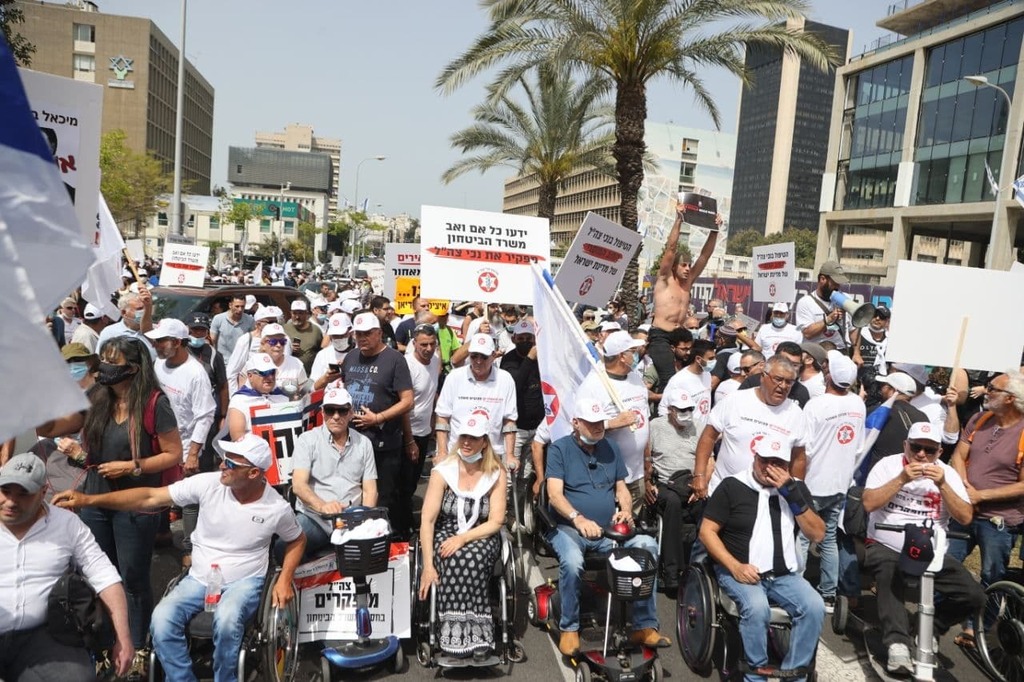Defense Ministry data shows that around 50% of the requests for recognition as a disabled IDF veteran between 2015 and 2019 were rejected, shedding further light on the frustration and anger expressed by many wounded former soldiers.
The issue of the treatment of disabled veterans has been thrust into the spotlight in Israel due to the case of Itzik Saidyan, a 26-year-old former soldier who served in the 2014 Gaza war and suffered from severe PTSD.
3 View gallery


Disabled IDF veteran Itzik Saidyan set himself on fire to protest his treatment by the state
Saidyan is fighting for his life at Sheba Medical Center after setting himself on fire last week at a Defense Ministry office for disabled veterans to protest the state's failure to increase his disability ranking.
On Sunday, disabled veterans blocked the streets around the Defense Ministry headquarters in Tel Aviv to protest what they say is shoddy treatment by the government.
According to the Defense Ministry data, there were 20,972 requests for disabled status by IDF veterans in that four-year period, about half of which were rejected.
In that period, there were 6,046 appeals against the Defense Ministry decision, which are handled by the district courts. About 70% of the appeals were rejected by the courts, 15% were upheld and in 15% of appeals a compromise was reached.
However, the number of unprocessed appeals from year to year is almost twice the total number of appeals filed, creating a massive backlog.
About a third of the requests are for disabilities caused by military operations, and other requests include various illnesses that discharged soldiers suffered during their service or injuries caused as a result of military service.
The process of applying for the status of disabled veteran, which includes discussions, committees and inspections, is a long and exhausting one.
According to the data, the average duration of the application process from 2015 to 2019 was 80 days. The average duration of an appeal against the decision to reject an application was 158 days.
"The data regarding the procedure for handling applications proves that the protests from the victims of trauma is caused by the reality on the ground," said On Ronen, a lawyer dealing with soldiers' claims against the Defense Ministry.
"An examination of the data shows a direct connection between the [anger] of the IDF soldiers and the conduct of compensation officers," he said.
3 View gallery


Disabled IDF veterans protesting outside the Defense Ministry on Sunday
(Photo: Moti Kimchi)
"The data shows us in black and white that there are hundreds of requests that are not answered at all in the year in which they are submitted – simply put, this is procrastination," Ronen said.
"If that's not enough, we see that about half of the claims for recognition are rejected. However, the procrastination does not end there. Most of the decisions to reject are appealed. The average number of cases pending in courts is about 2,500 per year."
Prime Minister Benjamin Netanyahu said Sunday he will ask the government to vote on broad reforms to the rehabilitation process for wounded IDF soldiers and veterans within the next two weeks.


